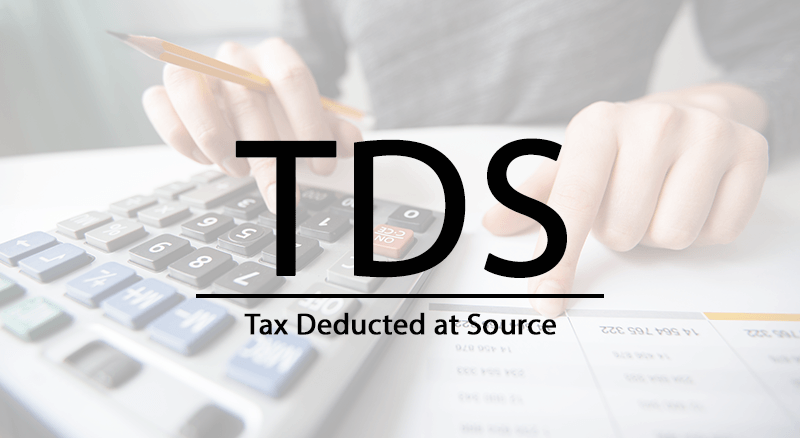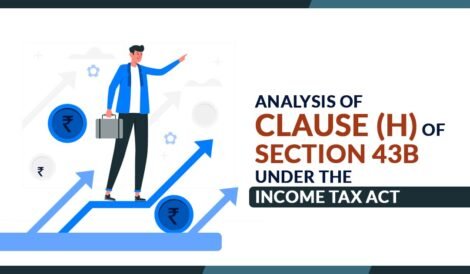TDS (Tax Deducted at Source) on Transfer of Immovable Property by Non-Resident Person and Repatriation of Sale Proceeds
If any non-resident person is selling property situated in India is required to deduct TDS by buyer under Section 195 of the Income Tax Act. The tax has to be deducted at source irrespective of the amount of sale consideration unlikely of resident person who is required to deduct if the sale proceed exceed for Rs. 50 lakhs.
Buyer/deductor is required to obtain TAN number to comply with the requirement to file TDS return of tax deducted on payment to the non-resident.
Some relevant provisions are:
- Type of Capital Gain
- Short Term Capital Gain
- Long Term Capital Gain
- Tax Treatment of Short-term Capital Gain in hand of non-resident
If the non-resident seller has short term Capital Gain, then it will be taxed as per the Income slab applicable to the non-resident. Inn case of Company at 40 percent as prescribed by the Income Tax Act
- Tax Treatment of Long-Term Capital Gain in the hand of Non-Resident
In the case where non-resident has long term capital Gain then it is a flat rate of 20% applicable
- Surcharge and Health and Education Cess
The surcharge is applicable as per the Income of the non-resident which varies from 10 to 37% depending upon the quantum of income. Health and Education cess will be levied at the rate of 4% on Tax and surcharge.
- Mandatory to Deduct TDS
In the case of a non-resident person even if the other taxable income is NIL. Suppose seller has long term Capital Gan against on the Capital Assets and there is no any other income, the non-resident has to pay long term Capital Gan Tax.
- Lower Tax Deduction Procedure
As mentioned above, there is no slab limit to deduct TDS on the purchase of immovable property from a non-resident and only a flat rate of 20% applies. So, if the non -resident has Long Term Capital gain and has a belief that the total Income during the relevant Financial Year would be lower and consequently lower TDS should be deducted. Then non-resident can apply for a Lower Tax rate under section 197 of the Income-tax Act. Even Tax Deductor can also apply under section 195(2) of the Income Tax Act for a lower tax rate.
An application can be made online on the Income Tax TDS portal along with the required documents and tax computation revealing lower tax.
On the basis of the document submitted, Assessing Officer will evaluate the transaction and Computation and accordingly determine the rate which will be applicable to deduct TDS. Buer of the Property will deduct TDS as per the certificate issued by the assessing officer of the Income Tax Act.
A surcharge will be applicable as per the prescribed rate as per income slab applicable along with Health and education cess.
- DTAA (Double Tax Avoidance Agreement) Provision
As per section 90 of the Income Tax Act, non-resident has the option to select the best option whether they want to avail the DTAA benefits or go with the Income tax rate as prescribed. Provided non-resident who resides in the country should have DTAA with India.
However, for availing benefits of DTAA non-resident who transfer the property in India will have to furnish a Tax Residency Certificate to the payer.
- Tax Relief
Long Term Capital Gain from the Single Property can be invested only in one Property to get tax exemption on long term capital gain. Also, under section 54EC, they can invest in certain Bonds.
- Repatriation of proceeds of sale of Immovable Property
A non-resident is permitted to repatriate their money up to one million in a financial year out of total balance in NRO account with certain restrictions and the amount should be subject to freely repatriable as per the master circular of RBI. For more than that, required permission of the RBI. For details understanding, refer to the master circular of RBI.
- Whether Non-resident is required to File ITR
If the taxable income exceeds the exemption limit, then it is required to file Income Tax Return within the cutoff date. Even if the tax has been deducted at a higher rate than also for getting a refund, the income tax return is required to file.
From the assessment year 2020-21 and onward, it has been made obligatory that if the income of any person before availing deduction under sections 54, 54B, 54D, 54EC, 54G, 54GA and 54GB is above the threshold limit for the filling the Income-tax return, then the assesses is mandatory to file their return of Income.
- Reporting Requirements as per Income Tax Rules
As per Rule 37BB of the Income Tax rule, it is required to submit forms 15AC and 15CB (subject to applicability) to the authorized dealer (Bank) while sending remittance to the non-resident.
Under the Liberalization remittance Scheme, remittance up to USD 2,50,000/- may be made for several specific purposes except for some Country which is non-cooperative.
Declaimer: The information provided in this article does not, and is not intended to, constitute legal advice; instead, all information, content, and materials available in this article are for general informational purposes only.




